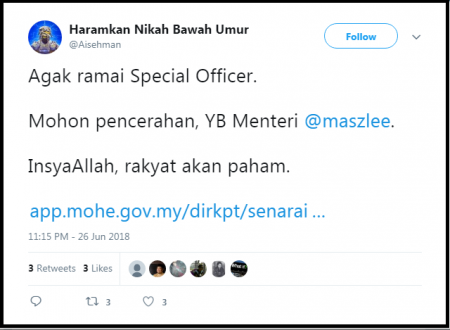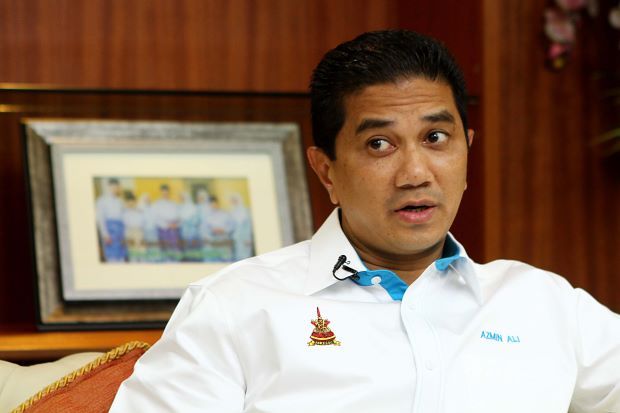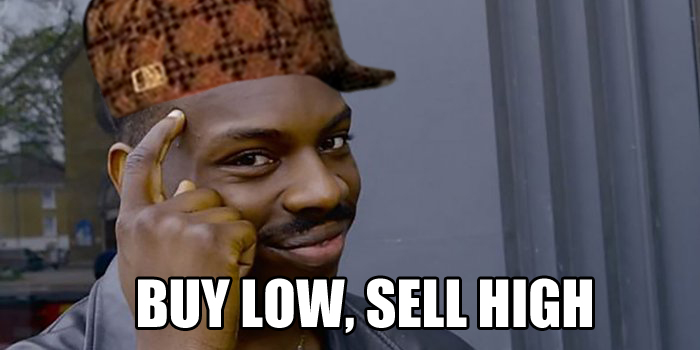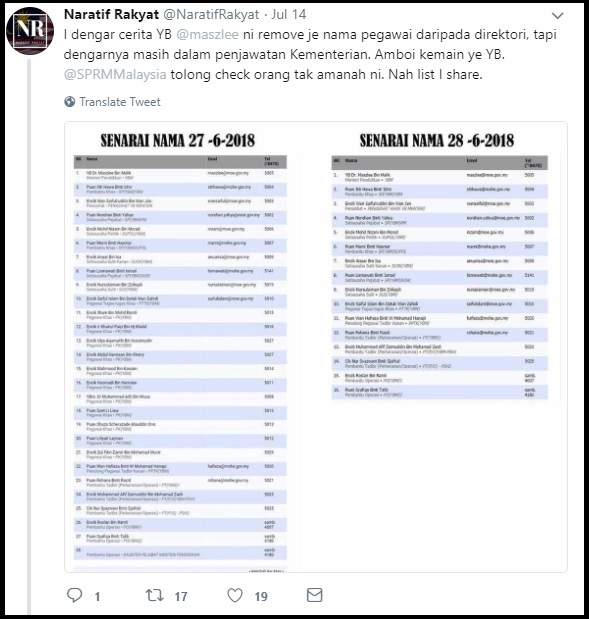Recently, people have been talking about Syed Saddiq‘s appointment (and subsequent quitting) of Numan Afifi, an LGBTQ activist as his press officer. Tun M, on the other hand, decided to terminate 17,000 politically-appointed staff that are made of officers for ministers of the previous government.
Even Dr Maszlee Malikwas chastised for appointing 10 Special Officers (SO) to work under him. There had been a lot of talk regarding ministers’ officers, and we haven’t even started on those that were jailed.
ArthroNEO
Actipotence

Screengrab of Aisehman’s tweet.
In practice, ministers and their deputies can appoint several people to posts such as Principal Private Secretary, Special Officers and others to assist them in ministerial jobs and political affairs. However, in more recent times, Tun M had announced in a cabinet meeting that ministers and their deputies can only appoint two special officers to save on costs. But what do Special Officers do anyway?
To start off, it might be interesting to note that many politicians started out as Special Officers, and…
KJ and Azmin started out as Special Officers as well

Omg he’s everything once. Img from Astro Awani.
There are two ways one can be a Special Officer: either by a government appointment or a political appointment. A government appointment would require being interviewed before you get the job, but to be politically appointed one need to be recognized by the minister first, either from his/her circle of friends, from a political party or other means. This practice is a bit controversial lah, as the qualifications is up for debate. Many questioned it when DS Nazri Aziz appointed his own son to be his Special Officer. Nepotism much? But many other politicians started out as Special Officers, like KJ and Azmin Ali.
KJ used to be the Special Officer for the fifth Prime Minister, Tun Abdullah Ahmad Badawi, aka Pak Lah. If you’ve read Raja Petra’s The Khairy Chronicles, he had alleged that even though KJ was merely a 28-year-old SO to Pak Lah, he greatly influenced the ex-PM’s decisions. At one point, Petra went as far as saying that Pak Lah was but KJ’s puppet. Another political journalist, Yahaya Ismail, had written a book titled “Khairy Jamaluddin: Bakal PM?” (Khairy Jamaluddin: future PM?) due to his belief in how strong KJ’s influence on Pak Lah was.

Azmin Ali. Img from mStar.
As for Azmin, he became an SO soon after he finished his studies in the US. In fact, he was tasked by his ‘foster father’ Tun M to be Anwar Ibrahim’s SO at the tender age of 23. He then became Anwar’s private secretarywhen Anwar was the Education Minister, Finance Minister and Deputy Prime Minister. When Anwar got fired, Azmin stuck to his side and established the Parti Keadilan Rakyat (PKR) together. Which wasn’t a bad choice, as he is now a minister in PH’s government cabinet.
NAH, BACA:
So now that we roughly know what Special Officers do, how much are they earning?
Actually, they aren’t paid by the Ministry they’re serving in

Img from meme.xyz.
Come to think of it, it’s kinda shocking to know that the government wanted to fire 17,000 politically-appointed staff. So many ar? SosCili spoke to Mr Hisham, who once became DS Najib’s SO, and here’s what he has to say about it:
“I think that DS Najib had more than 20 SOs, but I haven’t even met all of them. But each SO had important tasks.” – Mr Hisyam, to SosCili.
And it’s not just the old government being criticized. When it was found that Dr Maszlee had appointed more than 10 SOs, he was lambasted as his actions were contrary with Tun M’s cost-saving statement. But not 24 hours later, the Education Ministry’s directory was re-edited, and details on Maszlee’s SOs disappeared. He has yet to comment on this matter.
But with so many of them… where does the money to pay them come from? Does their pay come from taxpayers or the minister’s pockets? Neither, actually. Politically-appointed SOs are paid by Government-Linked Companies under the ministry. For example, if a guy is an SO for the Ministry of Domestic Trade, Co-Operation And Consumerism (KPDNKK), his pay will come from the SSM, Bank Rakyat and other GLCs under KPDNKK as they are said to indirectly help out these GLCs in terms of relations and stuff.
Some of us may think that people working as SOs are filthy rich, based on news storied of Hilman Idham, Azmin Ali’s SO who wore an RM87,000 watch and whose wife sported an LV bag. Or maybe it was Zuraida Kamaruddin’s former SO, Datuk Adam Rosly who was said to own a RM7 million bungalow. But in reality, SOs aren’t as rich as the media portrays them to be.
“We also have a pay grade system and the upper limit of our pay was just RM5,000… to be honest I made more from my business than this.” – Mr Hisyam, to SosCili.
RM5,000 for what? A Special Officer’s job scope is a bit huge, as they don’t exactly have job descriptions, and their tasks are often ad hoc. For example, some Special Officers are also a minister’s communications officer, speech writer, policy expert, researcher or basically doing any other arbitrary thing a minister might need doing.

Sounds good. Img from WeKnowMemes.
They also don’t have their own workspace in the ministry, and work hours are irregular. Sometimes they have to be in front of a minister’s house at 2 or 3 in the morning.
“An SO is rarely free, it’s a very tiring job with no fixed schedule. Simply put, when you become an SO, you’re giving yourself over to the ministry.” – Kok Hin, to SosCili.
So SOs are also hardworking people, perhaps earning an honest living. However…
NAH, BACA:
Some have questioned the need for SOs
SOs have been associated with abuse of power through issuing out supporting letters for their family members, to help them get government tenders, getting them aid from the Dept of Social Welfare, and other stuff; like a recent case where a BERSATU youth leader was said to misuse support letters to secure 80 lots of bazaar at Jalan Masjid India, then selling them off at cutthroat prices.

Img from KnowYourMeme.
Their jobs have also been said to overlap with the tasks of a minister’s secretaries. For example, an SO may write out a minister’s speech, but there’s already a press secretary for that. So what are SOs supposed to be doing anyway?
SosCili had interviewed Mr Kok Hin, a political analyst from the Penang Institute, and even he was baffled on why we can’t follow the US system where they have political assistants, political advisors, campaign staff and office staff, each having their own distinct job scopes.
“In the US, every officer has a clear task but in Malaysia, the tasks of officers often overlap with each other. They need to have a clear separation so that they can be more transparent and have more accountability for their tasks.” – Kok Hin, to SosCili.
Besides that, Kok Hin also feels that SOs paid by GLCs should do tasks associated with the ministry, not help out in political matters. This is seen as unfair to politicians who are not ministers, as they don’t have SOs. Dubious connotations aside, it can’t be denied that being an SO has its perks. They often meet big names in either political or corporate Malaysia, and this might help them later if they decide to go into politics or business. They can also accompany their ministers on work trips outside the country. But people who become SOs are usually successful enough to start with.
“SOs are usually well-connected people and they’re often successful in their own fields. They become SOs for the political and administrative experience they can use in the future,” – Kok Hin, to SosCili.
So with all we know about SOs…
NAH, BACA:
Do ministers really need that many SOs?

…or ten. Meme from Pinterest.
Seeing as a minister is the head of a ministry, a parliament member, usually holds a central party position, the chairman or an advisor to a GLC, and maybe even a father/mother, perhaps it’s logical for them to appoint several SOs to help them out. For example, DS Najib Razak did have a lot of SOs during his time as PM, and each of them helped him manage projects like the MRT construction, 1Malaysia clinics, TN50, SL1M and many more.
Another factor would be technology making everything faster, leading to a lot of tasks that needed to be done in a shorter amount of time. So unless a minister is secretly a lizardman, he or she would need several SOs to handle several projects at the same time. Dr Maszlee might have appointed 10 SOs for these reasons, but it may also be because he’s new to being a minister. Plus, his ministry is a combination of two previous ministries (Education and Higher Education), so there’s a lot to do.

A tweet detailing the alleged disappearance can be found here.
Cilisos also managed to interview Syed, who was formerly an SO to DS Ahmad Maslan, and here’s what he has to say:
“If a minister is surrounded by excellent people, it will help the minister to make better, more sound decisions. We also act as facilitators to the ministrythat smooths out administration tasks,” – Syed, to SosCili.
As ministers or their deputies, one has to be smart in choosing a hardworking SO, as lazy SOs will bring shame to the ministry. People might wonder why a minister might have so many SOs but get so little done. In conclusion, being an SO isn’t as easy or as glamorous as it may seem. Often, they’re also known as glorified butlers, with almost no time for themselves or their families. Some SOs even had to send their children to their parents house.
“To those who say that SOs are useless, just try and do our jobs for a day. Your phones won’t be turned off, and your power banks will always have to be full. Some of us were under so much stress that we got hypertension and heart attacks,” – En Hisyam, to SosCili.
– https://cilisos.my/






No comments:
Post a Comment
Note: Only a member of this blog may post a comment.